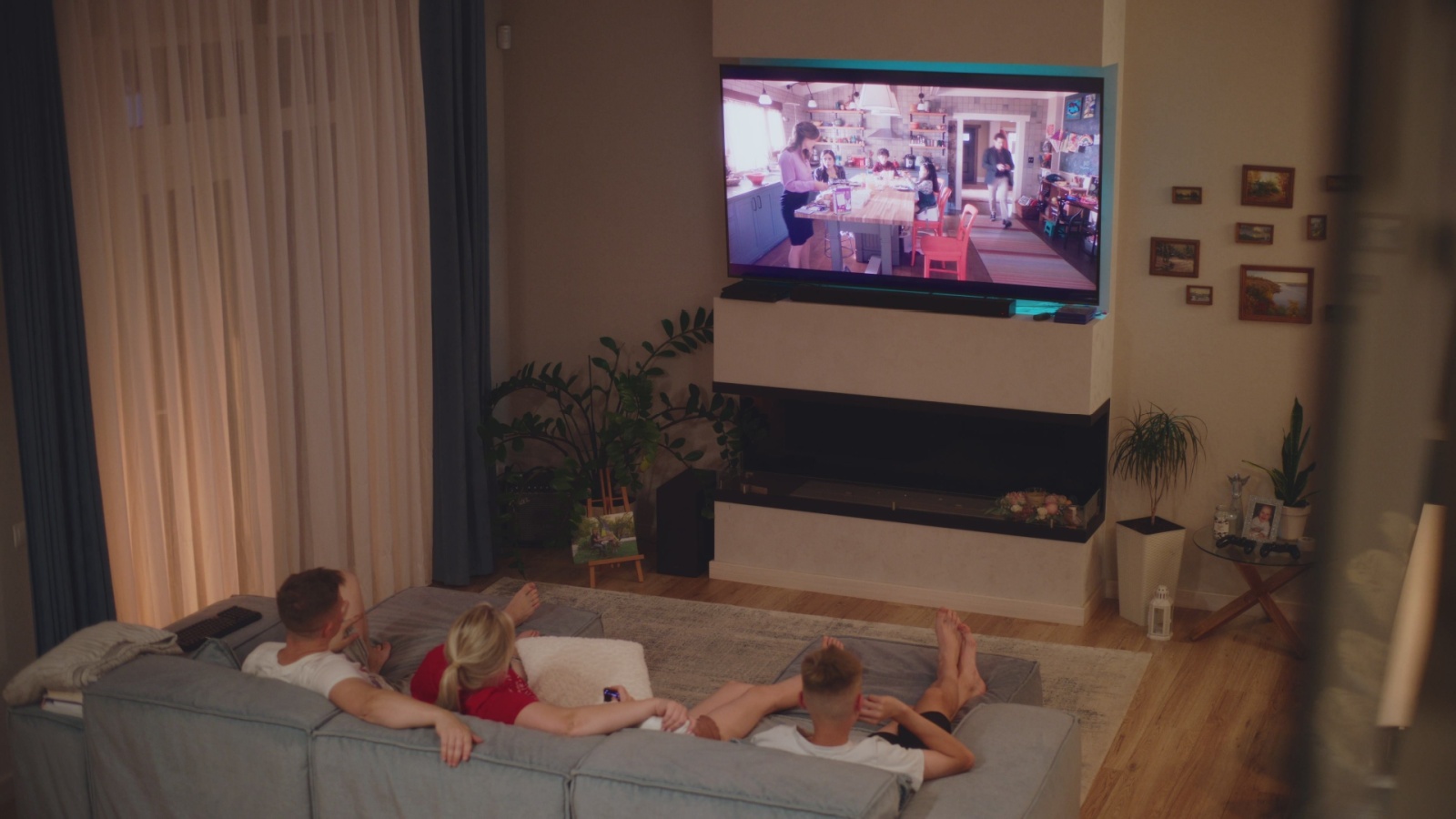Television in Canada has always been an underrated treasure chest of creativity, authenticity, and charm. While the country has produced shows that resonated deeply both at home and abroad, many of these gems disappeared far too soon. Budget cuts, shifting networks, or underwhelming marketing often ended what could have been long-running cultural staples. Here are 22 Canadian TV shows that ended too soon.
Flashpoint (2008–2012)

A tense police drama focused on Toronto’s Strategic Response Unit, Flashpoint stood out for its emotional depth and human portrayal of crisis management. It combined the thrill of tactical operations with ethical dilemmas, showcasing police as mediators rather than just enforcers. Despite earning international acclaim and a solid following in both Canada and the U.S., the show ended after five seasons. Its creators chose to conclude on their own terms, though fans argued it still had untapped storylines. The show’s balance of heart and action made it one of Canada’s most respected exports in modern television.
Being Erica (2009–2011)

This dramedy followed Erica Strange, a woman who literally revisited her past mistakes through time-travel therapy. Smart, funny, and emotionally layered, Being Erica explored themes of self-acceptance, regret, and growth in a way that felt both deeply human and distinctly Canadian. It attracted a strong cult following internationally, but budget constraints and changing network priorities led to its cancellation after four seasons. Many viewers still believe the concept had infinite potential, especially given its creative blend of therapy and fantasy. Its finale offered closure, but the emotional connection it built ensured its legacy lived on.
Corner Gas (2004–2009)

Set in the fictional small town of Dog River, Corner Gas quickly became one of Canada’s most beloved sitcoms. Its humor relied on wit, quirky characters, and the rhythms of small-town life rather than flashy gimmicks. The show consistently ranked among the highest-rated Canadian programs of its time and even inspired a movie and animated reboot. However, fans still felt its six-season run was shorter than deserved. Its gentle humor and unpretentious storytelling proved that good writing and lovable characters could make even a gas station iconic in Canadian pop culture.
Slings and Arrows (2003–2006)

This dark comedy-drama about a struggling Shakespearean theatre company offered one of the sharpest portrayals of creative chaos ever filmed. Its mix of backstage tension, literary brilliance, and humor gave it universal appeal. Critics adored its intelligent writing, and performances by Paul Gross and Rachel McAdams elevated it to cult status. Still, it only ran for three seasons, leaving fans wishing for more tales from the fictional New Burbage Theatre. Despite its short lifespan, Slings and Arrows became a benchmark for quality Canadian storytelling and remains studied in theatre and film programs worldwide.
Republic of Doyle (2010–2014)

A Newfoundland-set detective comedy-drama, Republic of Doyle offered a fresh coastal twist on crime-solving television. Starring Allan Hawco as private investigator Jake Doyle, it combined humor, adventure, and heart in equal measure. Its lively depiction of St. John’s, along with a colorful cast of recurring characters, made it a fan favorite. Despite strong viewership and international interest, the series ended after six seasons. Though it wrapped up many plotlines, audiences lamented its absence, citing its distinct mix of charm, family dynamics, and maritime energy as reasons it should have continued.
Orphan Black (2013–2017)

A groundbreaking sci-fi thriller, Orphan Black followed Sarah Manning as she uncovered a vast cloning conspiracy. Tatiana Maslany’s performance, portraying multiple clones with striking individuality, was nothing short of extraordinary. The show tackled identity, ethics, and power with intelligence rarely seen in television. Though it lasted five seasons, fans and critics alike felt its complex world could have easily supported more stories. Its finale tied up the main arcs, but the vibrant universe it built still left viewers hungry for more. Orphan Black remains one of Canada’s most globally acclaimed series.
Street Legal (1987–1994, revival 2019)

As one of the country’s first major legal dramas, Street Legal set the stage for professional realism in Canadian television. It followed lawyers navigating cases and personal relationships in Toronto’s demanding legal world. Its original run made it iconic, but the brief 2019 revival lasted only six episodes. The new iteration had strong potential to modernize the series, touching on gender and justice issues of today. Its abrupt end disappointed longtime fans who hoped it could reconnect generations through its evolved storytelling and relevance to current social debates.
Continuum (2012–2015)

A science fiction series mixing time travel and social commentary, Continuum starred Rachel Nichols as a cop from the future trapped in present-day Vancouver. The show explored corporate dominance, surveillance, and rebellion, topics that grew increasingly relevant with time. Despite an engaged audience and critical praise, it was cut short after four seasons due to budget limitations. The creators were forced to wrap up complex storylines quickly, leaving several arcs unresolved. Fans admired its ambition and wished it had received the resources it needed to fully realize its political and technological potential.
Da Vinci’s Inquest (1998–2005)

This gritty procedural centered on coroner Dominic Da Vinci, played by Nicholas Campbell, who investigated mysterious deaths in Vancouver. Known for its realism, intelligent writing, and exploration of social issues, the series often blurred the line between fiction and documentary-style storytelling. It enjoyed critical success but ended after seven seasons when producers shifted focus to the spin-off Da Vinci’s City Hall. Fans found the transition abrupt and felt the original show still had much more to say about urban crime and bureaucracy. It remains a landmark in Canadian procedural television.
Traders (1996–2000)

Set in the fast-paced world of investment banking, Traders stood out for its smart scripts and sharp performances. It tackled financial ethics, ambition, and moral compromise in a way rarely seen on Canadian screens. The show earned a strong critical reception and several Gemini Awards, yet was canceled after five seasons. Viewers praised its realism and relevance, especially during Canada’s shifting economic era. Despite being one of the most intelligent dramas of its time, it suffered from limited promotion and scheduling issues that prevented it from reaching the broader audience it deserved.
Bomb Girls (2012–2013)

Set during World War II, Bomb Girls followed women working in a Toronto munitions factory while men fought overseas. The series celebrated female resilience, friendship, and the changing social roles of women. Its detailed historical accuracy and heartfelt performances earned it praise across audiences. Despite its popularity, Global Television abruptly canceled it after two seasons, leaving fans devastated. A follow-up TV movie attempted to tie up loose ends, but the show’s premature end robbed it of further exploration of women’s wartime impact. It remains a standout in Canadian historical drama.
Anne with an E (2017–2019)
A reimagining of Anne of Green Gables, this Netflix-CBC co-production modernized the classic story with themes of identity, feminism, and diversity. Amybeth McNulty’s portrayal of Anne Shirley was sensitive and layered, and the show’s cinematography was breathtaking. Despite critical acclaim and a passionate fanbase worldwide, it was canceled after three seasons due to network disagreements. Fans launched massive petitions for renewal, reflecting the series’s emotional impact. Anne with an E proved that a Canadian classic could be reinterpreted for modern audiences while maintaining its heart and integrity.
Little Mosque on the Prairie (2007–2012)

This groundbreaking sitcom depicted Muslim life in a small prairie town with humor, warmth, and intelligence. It broke stereotypes while sparking important conversations about faith and community. The series earned global recognition for its progressive portrayal of multiculturalism. While it ran for six seasons, many felt it could have continued evolving as Canadian society became even more diverse. Its finale offered closure but left fans missing its charm and boldness. Little Mosque on the Prairie remains a milestone in global television for its representation and relatability.
The Listener (2009–2014)

This supernatural procedural followed a Toronto paramedic who could hear people’s thoughts, blending crime-solving with psychic intuition. Craig Olejnik’s calm yet intense portrayal carried the show, which found international success, particularly in Europe. Despite strong overseas ratings, domestic viewership fluctuated, leading to its end after five seasons. The series had an engaging premise with endless potential for psychological and moral exploration. Its departure felt like an unfinished conversation about empathy, privacy, and human connection, concepts that would have fit perfectly in today’s era of emotional storytelling.
Radio Free Roscoe (2003–2005)

A teen series centered on four friends running a secret underground radio station, Radio Free Roscoe, captured the rebellious yet thoughtful side of adolescence. It resonated with viewers who valued individuality and self-expression. The show received awards for its writing and message, but ended abruptly after just two seasons. Many fans believed it could have naturally progressed into more mature territory, reflecting young adulthood. It remains fondly remembered for promoting creativity and authenticity in youth culture long before social media gave teenagers a platform for their voices.
The Border (2008–2010)

Focusing on Canada’s Immigration and Customs Security team, The Border tackled terrorism, espionage, and moral ambiguity in post-9/11 security. Its timely themes and layered storytelling made it both thrilling and politically charged. The cast, led by James McGowan, delivered compelling performances that drew strong viewership. However, budget challenges and the changing direction of CBC programming ended it after three seasons. Critics often cite it as one of the most realistic and ambitious Canadian dramas that could have expanded into global issues had it been allowed to continue.
Todd and the Book of Pure Evil (2010–2012)

This horror-comedy centered on high school students battling evil forces from a cursed book. Its mix of absurd humor, gore, and heart won over cult audiences. Despite a modest budget, it offered creative storytelling rarely seen in Canadian television. The show ended after two seasons, followed later by an animated film that offered closure. Fans admired its originality and wanted more of its wild imagination. Todd and the Book of Pure Evil exemplified how Canadian television could take risks that felt refreshingly different from mainstream formulas.
Intelligence (2006–2007)

A gritty crime series exploring the overlap between organized crime and government intelligence, Intelligence was hailed for its sophistication and realism. Creator Chris Haddock, known for Da Vinci’s Inquest, delivered complex narratives about loyalty, corruption, and power. Despite international praise and interest from American networks, the CBC canceled it after just two seasons. Many blamed politics and cost concerns for its demise. The show’s nuanced approach to espionage made it ahead of its time, and its premature end is still considered one of the great losses in Canadian television.
The Kids in the Hall (1988–1995)

This sketch comedy group’s television series became iconic for its fearless humor, satire, and weird brilliance. It redefined what Canadian comedy could be: raw, clever, and unapologetically odd. Though it ran for five seasons, its influence far outlived its duration. Many felt it could have continued evolving with changing times. Decades later, its brief revival proved how enduring its humor remains. Still, the original show’s early end left a void that no other Canadian sketch series has quite filled in terms of both risk and creativity.
Strange Empire (2014–2015)

A feminist Western set on the Alberta-Montana border in the 1860s, Strange Empire was unlike anything else on Canadian TV. It centered on women surviving in a lawless land after a massacre destroyed their town. Dark, intense, and socially conscious, it tackled trauma, gender, and survival in compelling ways. Despite critical acclaim, it was canceled after just one season. Viewers praised its originality and strong performances but blamed low promotion for its short run. It remains an example of bold Canadian storytelling cut short before finding its full audience.
Durham County (2007–2010)

This psychological crime drama examined the impact of violence and trauma on suburban life. Hugh Dillon’s portrayal of a damaged detective returned home to face his demons struck a nerve with viewers. Its tone was eerie and contemplative, blending realism with dark psychological tension. The series earned several awards and critical praise but was canceled after three seasons due to production costs. It had the potential for greater exploration of mental health and morality, themes that modern audiences would have found even more relevant today.
Kim’s Convenience (2016–2021)

A heartwarming sitcom about a Korean-Canadian family running a convenience store in Toronto, Kim’s Convenience became a cultural phenomenon. Its humor and sincerity won international audiences, and it helped launch the careers of Simu Liu and Paul Sun-Hyung Lee. However, the show ended abruptly after five seasons due to behind-the-scenes creative differences. Fans were disappointed, as unresolved storylines and emotional connections deserved more attention. The show’s legacy lives on as a pioneering work in representation and family storytelling, but its untimely end left an unmistakable sense of unfinished business.
21 Products Canadians Should Stockpile Before Tariffs Hit

If trade tensions escalate between Canada and the U.S., everyday essentials can suddenly disappear or skyrocket in price. Products like pantry basics and tech must-haves that depend on are deeply tied to cross-border supply chains and are likely to face various kinds of disruptions
21 Products Canadians Should Stockpile Before Tariffs Hit

